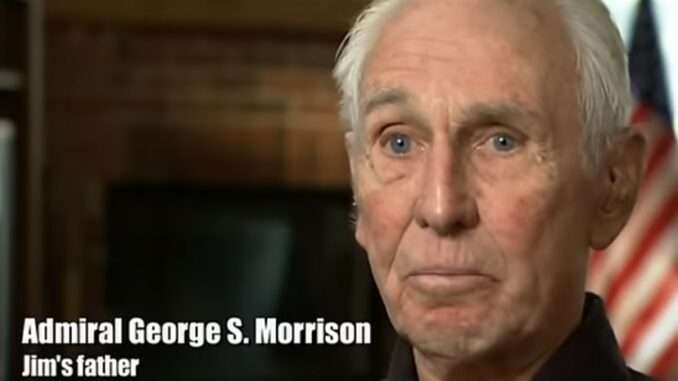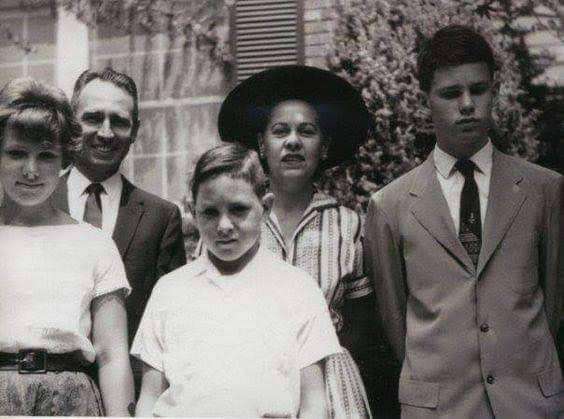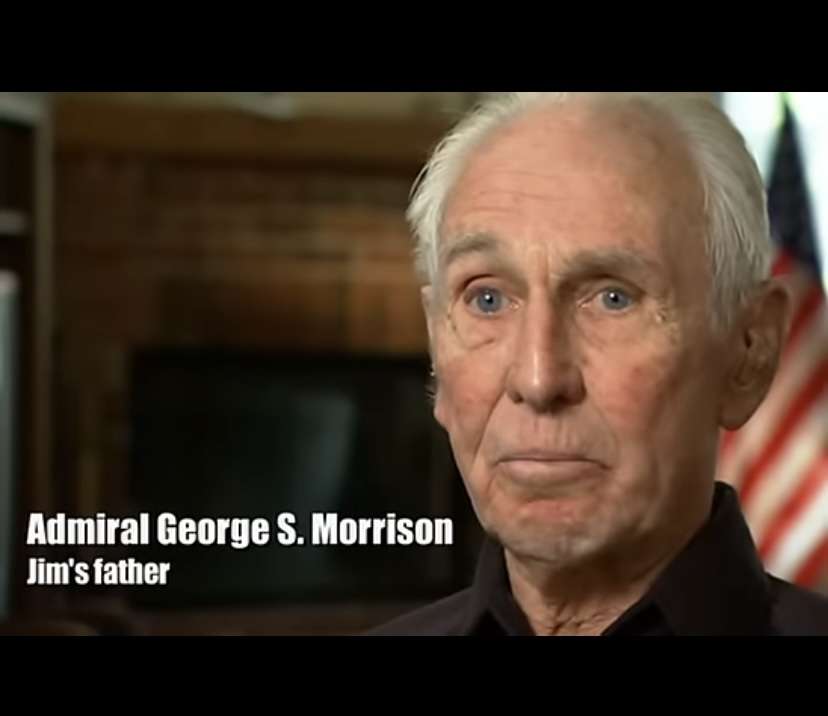
Jim Morrison, the enigmatic frontman of The Doors, famously distanced himself from his family during his rise to rock stardom. He introduced himself to the world not just as a revolutionary poet and performer, but as an orphan—claiming his parents were dead. This drastic personal myth was his way of severing ties with a strict military upbringing and forging a new identity as the “Lizard King.” But behind that distance lay a complex relationship, especially with his father, Admiral George Stephen Morrison.
Known for his stern discipline and traditional values, George Morrison initially struggled to understand his son’s rebellious choices and unconventional path. Yet, over time, his perspective evolved. What began as disapproval transformed into a quiet, unexpected respect.
A Clash of Worlds: Military Order vs. Rock Rebellion
Jim Morrison grew up under the shadow of a high-ranking Navy officer. His father commanded naval forces during key Cold War events, living in a world defined by precision, composure, and hierarchy. Jim’s world, however, became one of chaos, poetry, protest, and pure expression. He rejected authority, embraced counterculture, and lived without restraint.
This clash of values led Jim to emotionally break from his family. By telling the public his parents were dead, he ensured no one would trace his art back to a military household. His sister, Anne Morrison Chewning, later explained that Jim likely did this to protect both sides—shielding his father’s reputation while preserving his artistic freedom.

In the early years of The Doors’ success, George Morrison reportedly did not understand Jim’s music and dismissed rock and roll entirely. To him, it was noise—loud, chaotic, lacking direction. As a man formed by classical education and naval command, the raw unpredictability of The Doors was a world he couldn’t connect with.
He was aware of Jim’s fame but emotionally distant from it. The Morrison household followed Jim’s career in newspapers but struggled to comprehend his explosive stage persona.
The Turning Point: Recognition of a Poet
Years after Jim’s death in 1971, something changed in Admiral Morrison. Though he never fully embraced the wild image of the “Lizard King,” he began to view Jim through another lens—not as a reckless frontman, but as a serious poet and thinker.
George Morrison eventually wrote a letter publicly acknowledging his son’s talent. In it, he expressed regret over their estrangement and admiration for Jim’s artistic creativity. It was a profound shift—from strict father to humbled observer of legacy.
“Jim was a genius,” he admitted in later reflections. “I just misunderstood what he was trying to do.”
Understanding Came Too Late
Sadly, this change of heart came after Jim was gone. George Morrison spent his later years quietly guarding his son’s memory, no longer dismissing Jim as a rebellious child but recognizing him as a cultural force.
He even visited Jim’s grave in Paris, a silent act of reconciliation that spoke louder than any words between them ever did.
Legacy of Two Worlds

The story of Jim Morrison and his father is not one of dramatic reunion, but something more human: evolution, regret, and belated understanding. It shows how deeply generational divides can wound—and how art has the power to heal them, even after death.
Jim Morrison became forever known as the Lizard King, a symbol of freedom, poetry, and defiance. But behind him stood Admiral Morrison, at first bewildered, later humbled—ultimately recognizing that his son had commanded the stage the way he once commanded ships: with undeniable force.
In the end, the admiral saluted the poet.
Leave a Reply